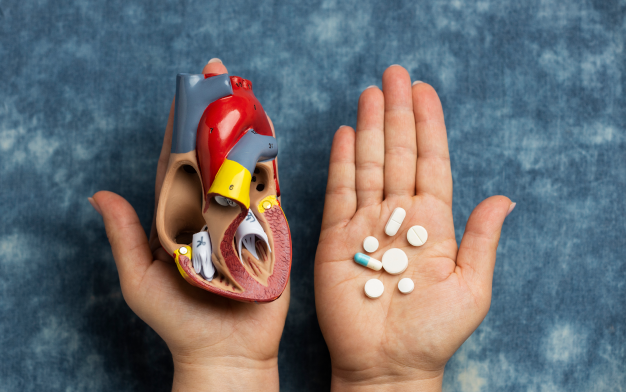Author: Dr. Deepak Davidson, Chief Interventional Cardiologist & Senior Consultant
A few days ago, around 8 PM, I received an emergency call while I was at a shop in Kottayam. A 60-year-old woman had been rushed to our hospital with severe chest pain. Her ECG confirmed a heart attack, and she needed an emergency angioplasty.
I immediately reached the hospital, performed an angiogram, and discovered a 100% blockage in a major heart artery. The patient underwent emergency angioplasty, and the blocked artery was successfully opened. Her health improved quickly — she moved from ICU to her room the next day and was discharged after a few days in good health.
But what surprised us was this:
She had no diabetes, no high blood pressure, and no cholesterol problems. So, why did she have a heart attack?
After speaking to her husband, we discovered the cause — he was a heavy smoker, both inside and outside the house. Continuous exposure to cigarette smoke (passive smoking) had damaged her heart. We explained that smoking was the main reason behind her heart attack. He immediately quit smoking after realizing this truth.
80% of Heart Attacks Are Preventable
According to the World Health Organization (WHO), 80% of heart attacks can be prevented by controlling known risk factors.
These are divided into two types:
- Non-modifiable Risk Factors
These are factors you can’t change:- Age: The risk increases after 65 in men and 70 in women.
- Gender: Before menopause, women are naturally protected by estrogen, but after that, their risk equals men’s.
- Family history: If your parents or siblings have heart disease, your risk is higher.
- Modifiable Risk Factors
These are factors you can control — and by managing them, you can significantly reduce your heart attack risk.- Smoking: Smoking is the leading cause of heart disease. Smokers are eight times more likely to suffer a heart attack than non-smokers. Quitting smoking reduces risk dramatically — within a year, your risk becomes nearly equal to someone who never smoked.
- Diabetes: India is known as the “Diabetes Capital of the World”, and diabetic patients are at much higher risk for heart disease. Uncontrolled blood sugar damages the inner walls of arteries, leading to blockages. Even if diabetes is under control, patients often need cholesterol-lowering medication for complete heart protection.
- High Blood Pressure: High BP silently damages arteries, increasing the risk of heart attacks, strokes, and kidney failure. Blood pressure should be maintained below 140/90 mmHg at any age. It can be controlled with medication, reduced salt intake, and regular exercise.
- High Cholesterol:Cholesterol is another major risk factor. Ideal cholesterol levels are:
- Total Cholesterol: Below 200 mg/dL
- LDL (“Bad” Cholesterol): Below 70 mg/dL (and below 50 mg/dL if you already have heart disease)
- HDL (“Good” Cholesterol): Above 40 mg/dL
- People in South India often have naturally lower HDL levels, which can be improved through regular exercise.
Protecting Your Heart
Heart disease does not happen overnight. It develops silently over years — but the good news is, you can take charge of your heart health today.
Stop smoking, eat balanced meals, exercise daily, control diabetes and blood pressure, and get your cholesterol checked regularly.
At Caritas Hospital, recognized as the Best Cardiology Hospital in Kottayam and among the Best Cardiac Hospitals Kottayam, we provide advanced cardiac care with 24x7 emergency services, a dedicated Critical Care Unit, and expert cardiologists.
If you or your loved ones experience chest pain or shortness of breath, don’t delay — seek help immediately from the Best Cardiologist in Kottayam at Caritas Hospital. Early treatment saves lives.
.pdf%20300X60%20PX-02-02.svg)



